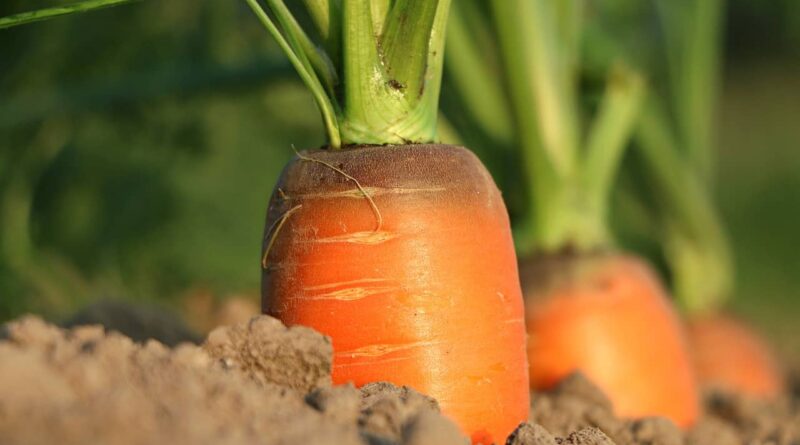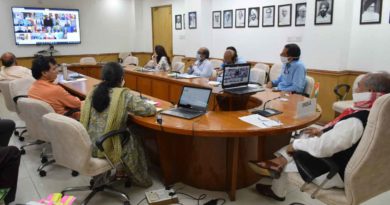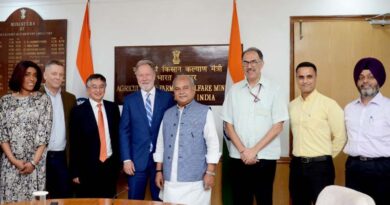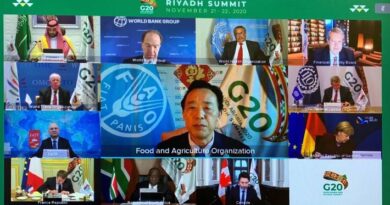Is world heading towards food crisis related unrest?
Guest Author: Shashikant Trivedi, Senior Journalist
21 September 2021, New Delhi, IN: A recently concluded G-20 Agriculture ministers’ meeting, under shadow of on-going deadly Covid-19 pandemic in hybrid mode, raised concerns of food crisis, anticipated global hunger and concerns of mounting unrest.
What worries the most is that the meeting also observed India is no exception, among other Asian countries, to such crises.
The Italian G20 Presidency hosted the two-day meeting in Florence, Italy which focused on the sustainability of agricultural and food systems. India actively participated in the meet.
Although, India assured the global leadership in the meeting that it has re-introduced traditional micronutrients-rich food items including millet, other nutritious cereals, fruits and vegetables, fish, dairy and organic products in the diet of the people, it could not satiate the forum’s observations that how it would tackle the growing climate change issues.
Also Read: Corteva Agriscience Announces Winners for 2021 Climate Positive Leaders Program
On forums’ concern over food and hunger the Agriculture minister Mr Narendra Tomar asserted that India has become a destination for such protein-rich grains due to phenomenal production in the recent years.
While addressing a session “Working together to achieve the Zero Hunger goal: successful projects implemented by the Ministries of Agriculture”, Tomar said that agriculture sector remained unaffected even during the COVID-19 pandemic in India as the various initiatives of the Government of India to keep the agri-market dynamic along with the agri-input supply chain. During the year 2020-2021, along with increase in the production of food grains, a significant increase jump in exports was recorded, the minister said, who participated in the meet virtually.
He pointed out the United Nations has already accepted the proposal of the Indian government and declared the year 2023 as the International Year of Millets. Mr Tomar appealed to the participating nations to support the celebration of Millet Year to promote nutrition and sustainable agriculture.
Mr Tomar pointed out that India has micronutrient-rich-bio-fortified varieties which are the source of staple diet. They are being promoted to remove malnutrition. India has released 17 such varieties of different crops for cultivation.
He reiterated India’s resolve to continue working together to achieve the twin-goals of ‘Poverty Reduction’ and ‘Zero Hunger’. He also reiterated India’s resolve to cooperate in research and development and exchange of best practices to enhance productivity.
Optimal use of water resources, augmented infrastructure for irrigation, fertile soil conservation with balanced use of fertilizers and back-end market support to farmers will keep India stay away from any such crises, he stressed. The minister said, “India is fully aware of its commitments on the issues of climate change and several steps have been taken to make agriculture sustainable.”
The ‘Per Drop- More Crop’ scheme for irrigation and ‘Paramparagat Krishi Vikas Yojana’ for organic farming ensure that India could meet any eventualities in food sector, he said.
On climate change, he said the Indian government has implemented the Pradhan Mantri Fasal Bima Yojana to provide insurance cover to form community so that the can face any eventualities like crop losses.
To address the malnutrition problem, India is running the world’s largest food-based safety net program, which includes the Public Distribution System and the Mid-Day Meal Scheme.
However the G-20 experts pointed out and sounded alarm that all countries including South East Asian nations will have trans-boundary climate risks to global food security, which are critical and mounting. But until now these countries have remained largely unrecognized by the global community.
India has yet to find answers in a better way that how it would tackle crisis as agriculture is one of the most exposed sectors to climate change. The frequency of severity increases in extreme weather condition in the short-term and broader shifts in climatic patterns in long term will dramatically impact agricultural production all around the globe. In some cases, warmer conditions will reduce yields.
The G-20 agri meet also observed that deadly COVID-19 pandemic has disrupted economies and leaves workers without work, income and sustenance.
Governments and international institutions are becoming increasingly worried about the growing constraints on access to food. The shrinking economies of various countries around the world has disrupted food supply and left workers without income for sustenance.
Supply chains are coming under pressure in development countries where workers either have no financial tools to face the pressure despite global stocks of staples including grains and pulses are deemed to be sufficient. The workers are fast losing out on earnings.
The experts sounded alarm that hunger and discontent could trigger a fresh wave of mass migration towards wealthier countries.
A joint statement released after the meeting the ministers said they had agreed to “guard against any unjustified restrictive measures that could lead to excessive food price volatility in international markets and threaten the food security and nutrition of large proportions of the world population”.
However humanitarian officials say the risk of hunger is highest in Asia’s poorer countries, including India, Bangladesh and Myanmar, and in economies that rely on overseas remittances or tourism, where receipts have been devastated by Covid-19.
A recently released Stockholm Environment Institute recent report said the traditional approaches to managing trade risk, such as substitution and diversification will be ineffective in a world that is facing accelerating climate change impacts simultaneously.
Trans-boundary climate change poses risk as it would leave critical and adverse impact on biophysical resources, financial flows, human mobility, infrastructure, national security, and trade. India has yet to find better answers to the impacts of climate change that do not respect national borders.















